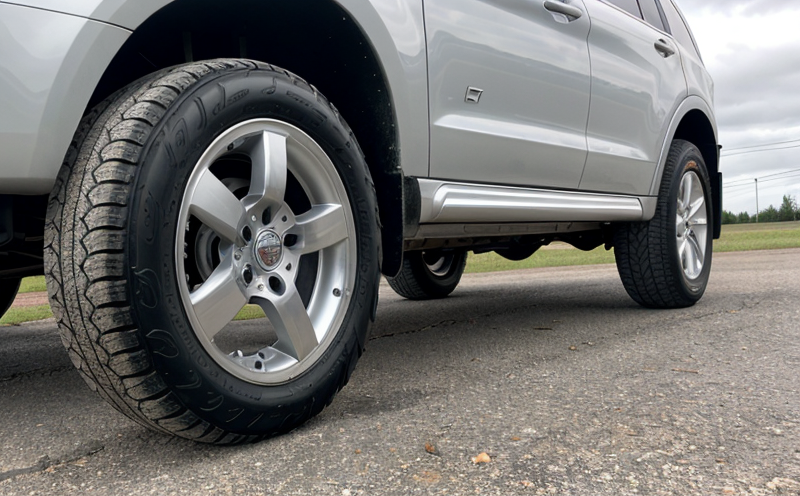EN 13261 Crack Detection Sensitivity Testing of Axles
The EN 13261 standard is a critical specification that defines methods for the crack detection sensitivity testing of axles in railway and transportation applications. This service ensures that axles meet stringent requirements, enhancing safety and reliability in transport systems.
The process involves subjecting axles to various mechanical stresses and conditions under controlled laboratory environments. These tests are designed to simulate real-world operating conditions to identify any potential flaws or weaknesses in the axle design. The primary goal is to ensure that any cracks or defects can be detected early, preventing failures during service.
The testing protocol requires thorough preparation of the axles before commencing crack detection. This includes cleaning, drying, and marking the specimen for accurate tracking of test results. During the test, various non-destructive testing (NDT) methods are employed to assess the axle's integrity. These tests include ultrasonic testing (UT), magnetic particle inspection (MPI), radiographic examination (RT), and others as specified in EN 13261.
The acceptance criteria for this service are defined by the standard itself, which mandates that axles must not exhibit any detectable cracks or defects beyond those that can be accepted under specific limits. This ensures that only safe and reliable products reach the market. Compliance with these standards is crucial for manufacturers to ensure their products meet international quality and safety benchmarks.
Competitive Advantage and Market Impact
- Enhanced Safety: By ensuring that axles are free from cracks, this service contributes significantly to the overall safety of railway and transportation systems. This is particularly important given the high stakes involved in these sectors.
- Regulatory Compliance: Ensuring compliance with EN 13261 helps manufacturers avoid costly penalties and reputational damage associated with non-compliance.
The market impact of this service extends beyond the immediate benefits to individual companies. By promoting higher standards in axle manufacturing, it contributes to a safer transportation infrastructure, which is beneficial for the entire industry and public safety as a whole.
Eurolab Advantages
At Eurolab, we leverage our expertise in rail and transportation testing to deliver comprehensive EN 13261 crack detection sensitivity tests. Our state-of-the-art facilities and experienced personnel ensure that every test is conducted with precision and accuracy.
We offer a range of services tailored to the specific needs of our clients, including consultation on best practices for specimen preparation and stress application. Our commitment to quality is reflected in our adherence to international standards such as EN 13261, ISO standards, ASTM, and IEC.
Our approach not only ensures compliance but also provides valuable insights into potential weaknesses in axle design, helping manufacturers improve their products. By partnering with Eurolab, clients gain access to a wealth of expertise that can significantly enhance the safety and reliability of their transport systems.
Use Cases and Application Examples
- Railway Axles: Ensuring that axles used in passenger trains are free from cracks is critical for preventing derailments and other accidents.
- Bus Axles: Regular testing of bus axles helps maintain the safety standards required by regulatory bodies.
In addition to these, our services also extend to other transportation sectors such as heavy goods vehicles (HGVs) and light commercial vehicles (LCVs). By adhering strictly to EN 13261 and other relevant standards, we ensure that all axles meet the highest safety and quality benchmarks.





